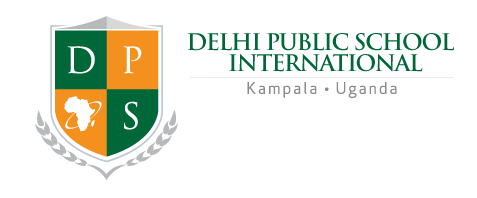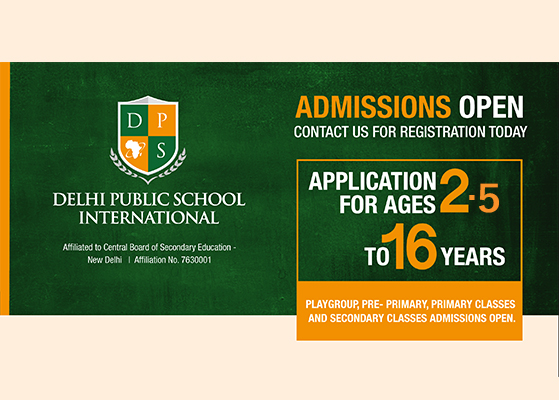ACADEMICS
Read More
- 1st QuarterApril to June. 2nd QuarterJuly to Sept. 3rd QuarterOct. to Dec. and4th Quarter Jan. to March.
- Ruparelia Group staff will enjoy a benefit of discount of 10% on tuition fees.
- Fees must be paid in full before a student will be permitted to sit in any examination.
- Transcripts (school reports and Leavers Certificate) will only be made available to future schools when all financial matters have been cleared through the Bursar’s Office.
- Fees are not refundable in whole or in part. In the event that a student is withdrawn from DPS INTL having previously booked attendance on a school trip – skiing, sports tour, outdoor education or other – then any monies already paid to the school will become non-refundable, and the student will no longer be eligible to attend the trip concerned
- DPS INTL reserves the right not to promote or continue the enrollment of any student if, in the opinion of the School it is in his/her best interest.
- In the event of any medical emergency, the School will attempt to contact the parents or guardian. If it is impossible to contact parents or guardian, the School is authorized to seek medical attention for the student from the nearest available qualified medical practitioner or hospital. In this event, the school and its staff shall not be held responsible for the results of medical treatment administered to the student, and any medical expenses incurred shall be chargeable to the parent.
ABOUT US
ADMISSIONS
The Kindergarten curriculum is based on age-specific learning outcomes. A space where multiple senses are sparked, investigations triggered into themes and topics, questions and discoveries welcomed with delight. Together, children and teachers reflect on the meaning of each activity and explore it thoroughly; in doing so, every child makes the experience authentic and the learning personal. Teachers attempt to understand the social and cultural contexts to which children belong, which gives clues to their emotional, cognitive and social needs. This helps teachers create a truly unique multicultural learning environment.
The kindergarten programme
1.Nursery 2. LKG 3. UKG
Curricular practices in kindergarten
The balanced approach of the Kindergarten curriculum is reflected by the daily activities built around the following practices, which set a framework for the overall development needs of this age group. Teachers are also observers, as they document the students’ progress at work and play.
1.Learning Centers:Many developmental and foundational skills are acquired here through observations in nature, construction (building blocks, clay), pretend play, reading and reuse-and-recycle centers. Children can learn and explore at their own pace. Teachers act as observers, as they document the students’ progress at work and play.
2.Teacher-Led instruction:While the class is at work in the learning centers, one of the two teachers in the class works in rotation with a small group of students on different skill areas.
- LKG Read-aloud classes and well-stocked classroom digital reading material introduce children to reading from the first day of school. Students learn how to handle books, look at illustrations, create their own stories, and begin the process of reading.
- UKG More focus on the children’s natural curiosity towards books and illustrations. They begin to exhibit reading-like behavior as they reconstruct familiar stories. Towards the end of UKG, the children are able to read familiar text, labels, captions etc.
By age 5, our kindergartners start reading and by the end of age 5 they are able to read three to four letter words and sentences.
Read More
- Language: The language programme at the Kindergarten is an exciting blend of phonics and spoken language approach. Children work and play with words and objects to develop and improve speaking and language skills.
- Math: Children explore numbers through concrete hands-on activities and colorfully designed digital content which enable them to understand quantities and operations. Through counting games, number rhymes, puzzles, challenges, children acquire a firm understanding o the subject.
- Science, Discovery and Explorations: Children at this age demonstrate a keen interest in exploring and discovering the world around them. The curriculum provides loaded stimuli from the immediate environment to allow observation, investigation, exploration, questioning and documentation of the children’s unique discoveries in many ways.
- Clay Work and Pottery: To develop fine motor skills and creative expression.
- Block Play: To nurture creative thinking and enable articulation of ideas.
- Dramatic / Symbolic Play: Giving the child a chance to enter a world of fantasy, as well as express a view of the world as she sees it.
- Art and Craft: Integral to the way children learn, and how they document their inner worlds and outer experiences, and a great way to connect to the child.
- Music and Movement: Children engage in creative dance movements; learn to play simple musical instruments and to sing.
- Storytelling and Poetry: Used to develop the child’s social, emotional and communication skills.
- Community Connections: The curriculum facilitates regular interactions with the community on special days and assemblies like grandparents and charity days.
- Physical Education, Games, and Movement: Includes swings, slides, balancing beams, rope ladders, obstacles etc. Children are guided by trained professionals to develop coordination, teamwork, independence and confidence.
- Excursions and Field Trips: Children visit surrounding farms, interact with local communities and glimpse their culture and lifestyles. These excursions also help widen knowledge of the environment, besides expanding observational skills.


